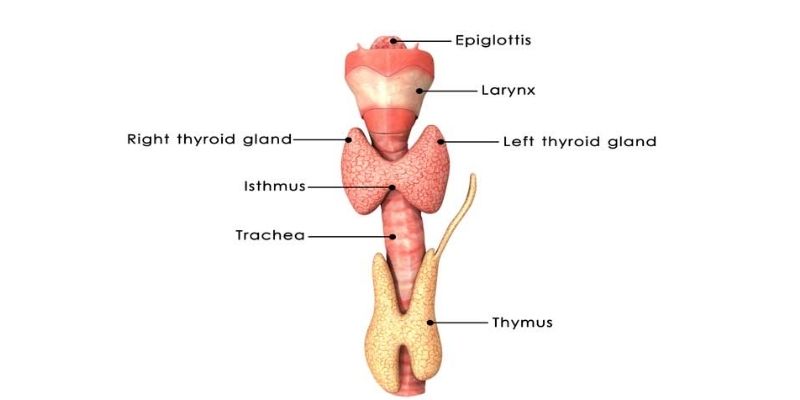A groundbreaking study has revealed surprising insights into the connection between diet, exercise, and diabetes. Challenging conventional wisdom, researchers found that certain lifestyle factors may play a bigger role than previously thought in managing and preventing the disease. These findings could revolutionize current diabetes guidelines and reshape how healthcare professionals approach its treatment.
Traditional Understanding of Diabetes Management:

Diabetes, particularly type 2 diabetes, has traditionally been linked to lifestyle factors such as diet quality, physical activity levels, and body weight. Standard medical advice has emphasized:
- A low-sugar, high-fiber diet: Chose whole foods such as fruits, vegetables, whole grains, and legumes to manage a healthier blood sugar state and to improve digestion.
- Weight management: By monitoring your weight, you can significantly reduce the risks of sugar problems and develop best metabolic health.
- Consistent aerobic and resistance training: One way to achieve this is through persistent exercise such as walking or jogging or even weight lifting, which may increase your body’s ability to absorb insulin and enhance your general fitness.
These practices have proven effective for many individuals in controlling blood sugar and reducing complications. However, the new study indicates that while these strategies benefit most patients, they may not yield uniform results across all populations.
What the Study Found?
The new research involved a longitudinal analysis of over 10,000 participants from diverse ethnic, geographic, and socioeconomic backgrounds. The researchers examined various factors, including dietary intake, exercise routines, genetic predispositions, gut microbiota composition, and long-term health outcomes.
Key findings include:
- Individual Response to Diets Varies Greatly: Some individuals showed improved blood sugar levels on high-carbohydrate, plant-based diets, while others responded better to low-carbohydrate, high-protein plans.
- Exercise Doesn’t Always Lead to Predictable Outcomes: While most participants experienced better insulin sensitivity from moderate exercise, a subset showed little to no improvement despite consistent physical activity.
- Genetics and Gut Microbiome Influence Effectiveness: Genetic variations and the unique bacterial composition in a person's gut appear to affect how their body responds to different food and exercise regimens.
These findings underscore the complexity of managing type 2 diabetes and point to a need for personalized healthcare strategies rather than a one-size-fits-all model.
Implications for Dietary Guidelines:
The study’s outcomes challenge existing dietary guidelines. It suggests that assigning a single diet plan to all individuals with diabetes may not be the most effective approach. Instead, dietary recommendations should be tailored based on:
- Genetic Profiling: Individuals with specific gene variants may process fats or carbohydrates differently.
- Cultural and Lifestyle Factors: Food choices are often influenced by cultural traditions and socioeconomic factors that need to be considered.
- Metabolic Typing: A person’s unique metabolism could determine how they respond to certain food groups.
For instance, someone with insulin resistance might benefit more from reducing carbohydrate intake, while another person with the same diagnosis might thrive on a high-fiber vegetarian plan. The study emphasizes that both can be valid, depending on the individual’s biological makeup.
Rethinking Exercise as a Universal Prescription:
Another surprising element of the research was the discovery that physical activity, while generally beneficial, does not always lead to the expected outcomes in glycemic control.
- Not All Exercise Has the Same Impact: Aerobic exercises, such as walking or swimming, have helped many, but did not benefit everyone equally. Some individuals experienced better results with resistance training or interval-based workouts.
- Timing and Intensity Matter: The study also highlighted that the time of day and intensity of exercise influenced blood sugar levels. Morning workouts improved glucose response in some, while for others, evening sessions were more effective.
This reinforces the idea that while exercise remains a crucial pillar of diabetes care, personalization in frequency, type, and timing could enhance its effectiveness.
The Role of Gut Microbiota:
One of the most innovative parts of the study examined how gut bacteria affect diabetes management. Researchers found that individuals with a higher diversity of beneficial gut microbes had better outcomes in terms of glucose control and weight management.
- Diet Influences Microbiome Health: Diets rich in fermented foods, fruits, vegetables, and whole grains were associated with improved gut health and insulin sensitivity.
- Individual Microbiome Signatures: The microbiome profile appeared to predict how well someone might respond to a dietary intervention. This opens the door to microbiome-based diagnostics for guiding diabetes treatment.
The findings suggest that future dietary prescriptions may include tests to evaluate gut bacteria before recommending a nutrition plan.
The Future of Diabetes Care
Given these insights, healthcare professionals are encouraged to move toward personalized diabetes management. This includes:
- Individual Assessments: Before suggesting a lifestyle change, physicians should evaluate genetic, microbiome, and metabolic data.
- Flexible Treatment Plans: A flexible approach that evolves with the patient’s needs, preferences, and response to treatment may be more sustainable.
- Continuous Monitoring: Utilizing wearable technology and glucose monitors can provide real-time feedback and aid in fine-tuning treatment plans.
Such personalization could improve outcomes, reduce frustration in patients who do not respond to standard treatments, and potentially lower the long-term burden on healthcare systems.
Challenges in Implementing Personalized Approaches:

Despite its promise, personalized diabetes care is not without obstacles:
- Cost and Accessibility: Genetic testing and microbiome analysis can be expensive and are not yet widely available or covered by insurance.
- Need for More Research: While the study is comprehensive, further clinical trials are necessary to validate and refine these personalized interventions.
- Education and Training: Medical professionals need updated training and tools to interpret advanced data and make individualized recommendations.
Policymakers and healthcare systems will need to invest in resources and infrastructure to make personalized care models accessible and scalable.
Practical Takeaways for Individuals with Diabetes:
For those currently managing diabetes, this study serves as a reminder that persistence and communication with healthcare providers are key. Here are some practical takeaways:
- Track Your Response: Monitor how your body responds to changes in diet and exercise rather than following generic plans.
- Ask for Personalized Advice: If your current treatment isn’t working, request more individualized evaluations.
- Focus on Gut Health: Including fiber-rich and fermented foods can support a healthier gut microbiome.
- Experiment Safely: Under medical supervision, try different exercise types or meal plans to see what suits your body best.
Conclusion:
This new study does not dismiss the importance of diet and exercise in managing diabetes, but it urges us to go deeper. It shows that effectiveness varies based on individual differences, and the era of generalized treatment plans may be nearing its end. As science advances, the hope is to tailor diabetes care so that each patient receives strategies that align with their unique biology, lifestyle, and preferences.












